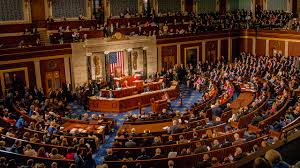Gbajabiamila Expresses Concern Over Low Voter Turnout in Lagos LG Elections Amid Political Tension
Peaceful Conduct, but Voter Apathy Remains a Concern, he said.
Voting took place at PU 014, Elizabeth Fowler Memorial High School in Adeniran Ogunsanya, Surulere, where Gbajabiamila cast his ballot. In his remarks, he applauded the calm and orderly conduct of the election but expressed concern over what he described as “general low turnout around Lagos state.”
He stated, “So far, I’ve seen peace, quiet, and free and fair elections. But I’m a little disappointed about the turnout. This is an area where we need to focus and improve.” He pointed out that many citizens might not fully understand the significance of local government elections—an understanding he believes is crucial because grassroots governance is arguably more impactful than many realise.
Highlighting the Need for Civic Awareness
Gbajabiamila called for increased efforts to educate and sensitise Nigerians about the importance of participating in local elections, asserting that “we need to educate our people about grassroots government and encourage them to see their votes as vital to national development.”
A Show of Support for Opposition Alliances
In another noteworthy stance, Gbajabiamila expressed support for the recent coalition of opposition groups, notably the African Democratic Congress (ADC), which includes prominent figures such as former Vice President Atiku Abubakar. He described the coalition as a “positive step for democracy,” explaining that it helps prevent Nigeria from slipping into a one-party system.
“Having some level of opposition is essential in any democracy,” he said. “Otherwise, we risk creating a one-party state, which is not healthy for our political landscape. While I don’t know exactly where this coalition will lead, it’s a welcome development.”
Reactions to the Opposition Coalition and Concerns About One-Party States
The coalition has already sparked widespread reactions, with some political observers viewing it as a potential game-changer ahead of the 2027 general elections. However, others remain sceptical about its ability to challenge the dominance of the APC, the ruling party.
Interestingly, former APC National Chairman Abdullahi Umar Ganduje stirred controversy when he suggested that Nigeria’s possible transition to a one-party state might not be a cause for concern if it occurs through voluntary defection among political parties.
“Leaders worried about a one-party state do not need to fear,” Ganduje remarked. “A one-party system is not by force, but by negotiation. If other parties see the benefits of good governance and choose to join us, there’s nothing wrong with that.”
He even likened Nigeria’s potential move towards a one-party system to China’s—arguing that it’s “not necessarily a bad thing,” owing to China’s strength as a nation.
Official Stance on Pluralism and Democracy
However, President Tinubu has quickly countered such notions, reaffirming Nigeria’s commitment to pluralism. During a joint session of the National Assembly on Democracy Day, he explicitly stated, “Nigeria will not become a one-party state. That is not in our plans.”
He added, “It would be political malpractice to close the doors for those who wish to join the APC, but we remain committed to a diverse and competitive political landscape.”
As Nigeria continues to navigate its democratic journey, the low voter turnout in Lagos serves as a wake-up call. Greater civic education and inclusive political engagement are crucial to revitalising public confidence and ensuring the vibrancy of Nigeria’s democracy, especially in a time where political cohesion and opposition are vital for healthy governance.



